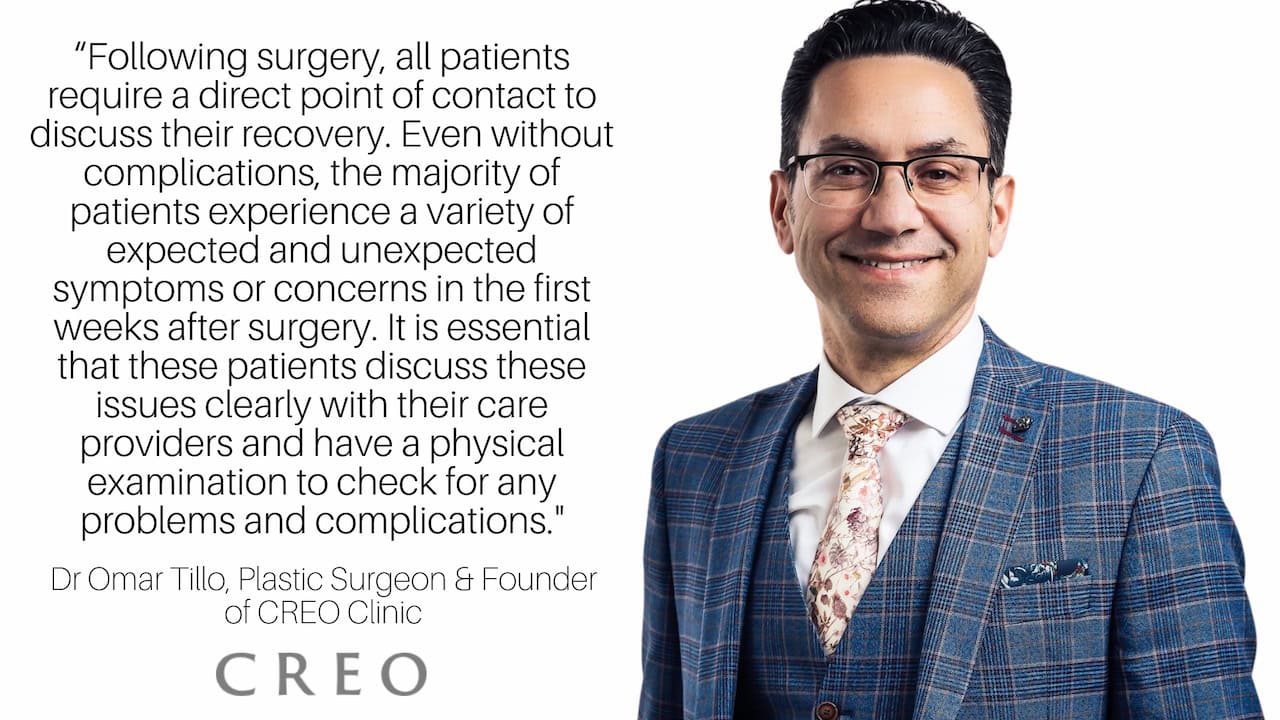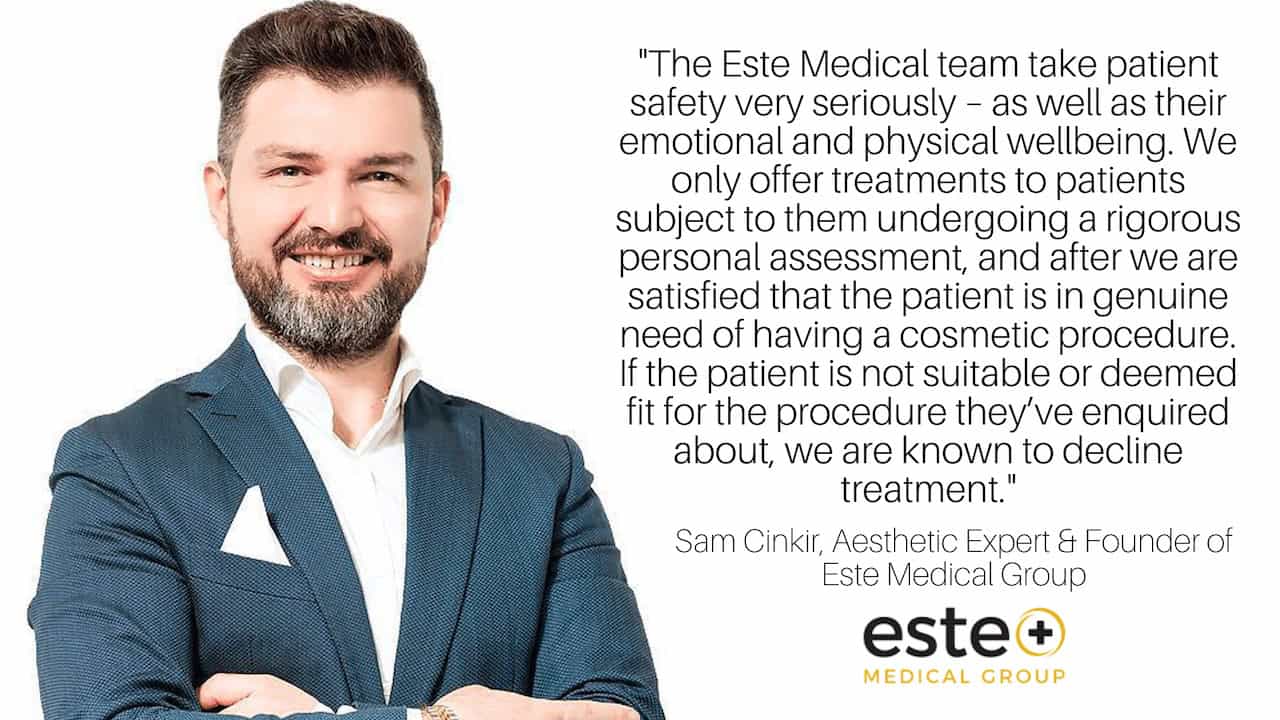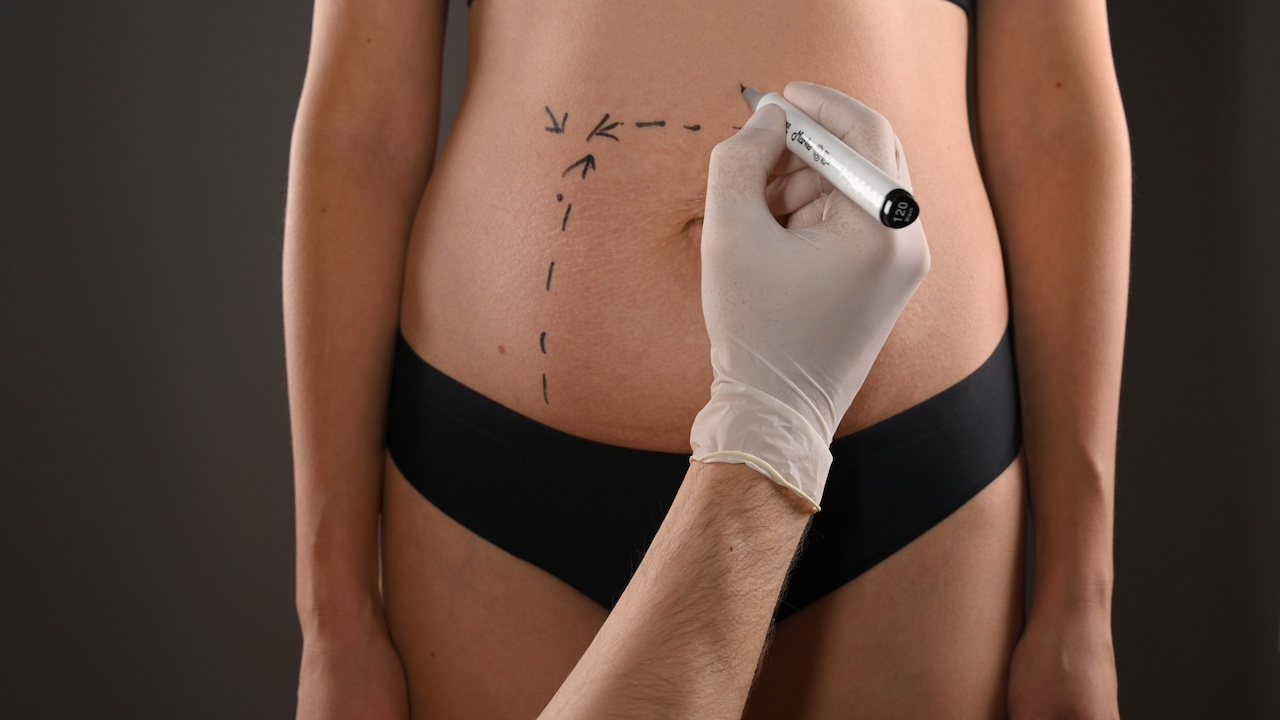Or worse, your life.
With reality tv stars and influencers flocking overseas for cheap cosmetic surgery procedures (not forgetting the coveted ‘Turkey teeth’ look!) – and Instagram ads featuring almost ‘too-good-to-be-true’ offers, it’s easy to get tempted by medical tourism. But with more and more horror stories coming to light – and thousands of botched jobs, complications and even deaths reported, at what cost are we really getting these cheap deals?
Here’s what the experts want you to know…
The Truth About Cosmetic Surgery Abroad: How To Stay Safe Overseas
Education is power, and doing as much research as you can before booking a procedure overseas is imperative. We spoke to Dr Omar Tillo – Plastic Surgeon & founder of CREO Clinic, and Sam Cinkir, Aesthetic Expert & founder of Este Medical Group, to learn more. These two esteemed experts have identified both some of the positives and negatives in travelling overseas for surgery; coming together to create an informative, helpful overview on all things medical tourism.
Red Flags, Warning Signs & Risks You Should Know About
If it looks too good to be true, it probably is. As with everything we see on the internet, not everything you see online when it comes to surgery overseas is factual. Do your research, be smart and don’t take things at face value. Your health is wealth.
“Sadly, the cosmetic surgery industry is not above ‘massaging the truth’ to lure patients to medical tourism hotspots for procedures,” Dr Omar Tillo, world-renowned Plastic Surgeon & founder of CREO Clinic, reveals.
“A lot of the online marketing campaigns you see on social media and via search engines are unregulated – and those hundreds of positive reviews you see on consumer sites could be fake. Ads, edited before & afters and aggressive marketing campaigns can portray substandard clinics as premium facilities… with many patients not finding this out until it’s too late.”

Be aware of different standards of practice – and potential language barriers.
“Other countries have different criteria when it comes to medical practice – and they’re regulated by different medical societies and organisations; maintaining and working to different medical standards,” Dr Tillo advises.
“This, plus distance and having to translate from one language to another, can make it tricky to determine your surgeon’s level of certification. And even if your surgeon is highly skilled, a patient may find it difficult to convey their desired outcome to their operative team; having to translate from one language to another. Not to mention the strains that being located in different time zones may add, when trying to communicate remotely with your surgeon!”
The importance of aftercare cannot be stressed enough.
This leads us on to the importance of aftercare, and how different medical standards and communication barriers can impact on its quality. You should never scrimp on aftercare – it’s every bit as important as the actual surgical procedure itself!
“Following surgery, all patients require a direct point of contact to discuss their recovery,” Dr Tillo tells us. “Even without complications, the majority of patients experience a variety of expected and unexpected symptoms or concerns in the first weeks after surgery. It is essential that these patients discuss these issues clearly with their care providers and have a physical examination to check for any problems and complications. Overseas clinics often provide short period follow-up and do not provide follow-up treatments. It is impossible to perform a physical examination if needed without travelling back”.

Traveling is stressful – and it can be potentially dangerous post-operatively.
Even without having had surgery, we can all agree that travelling is stressful! Flight delays, waits in the airport, connecting transportation and cramped economy cabin conditions are just a few of the pet peeves we can definitely do without when recovering from invasive surgery.
“Many medical tourists will forget about the return journey and the complications that can come with long-distance travel following recent surgery,” Dr Tillo says. “Flying within the same week of a cosmetic procedure can greatly increase your chances of developing blood clots… which could lead to deep vein thrombosis or a pulmonary embolism.”
The Positives and Green Flags To Note in Choosing Overseas Cosmetic Surgery
Whereby there are an alarmingly high number of botched jobs, complications and deaths associated with overseas surgery; there are, of course, some exceptional clinics and masterful surgeons based abroad. The key takeaway from this article is the importance of doing your research and dedicating time to finding the best clinic – and ultimately, best surgeon for you.

Sam Cinkir, founder of Este Medical Group, has 11 clinics worldwide; with his UK based branches fast becoming a premier destination for British based cosmetic surgery.
“For the past 25 years I’ve been very passionate about providing the same, premium quality procedures and services you’d find in the UK in our Istanbul centre – but with a UK assessment and UK aftercare,” he tells us. “This puts a lot of people’s minds at ease when booking surgery; having UK based contacts to consult with and have follow-up treatments post-operation; building reputability and trust.”
“Our team are present, transparent and will often travel to our Istanbul clinics when the patient is having their treatment, because we know that having a familiar face on site can reduce patient anxiety and enhance their experience.”
“I firmly believe that with transparency and internationally monitored and regulated protocol, partnering with the right clinic can ensure safety as well as efficiency.”
“At Este Medical Group, the most popular cosmetic treatments we provide in our Istanbul clinic are hair transplants, cosmetic dentistry and rhinoplasty procedures,” Sam continues.
The Este Medical team take patient safety very seriously – as well as their emotional and physical wellbeing. “We only offer treatments to patients subject to them undergoing a rigorous personal assessment, and after we are satisfied that the patient is in genuine need of having a cosmetic procedure. If the patient is not suitable or deemed fit for the procedure they’ve enquired about, we are known to decline treatment.”
